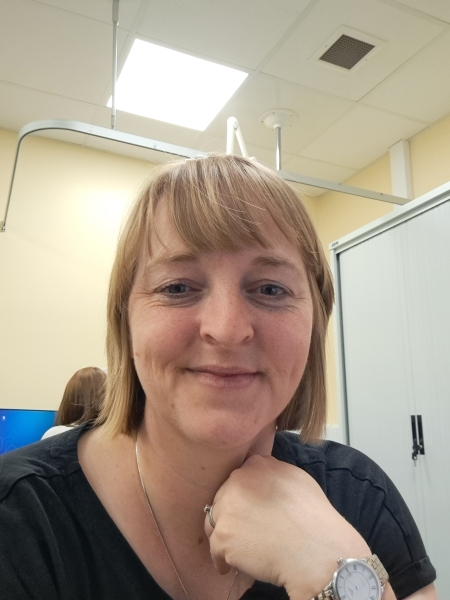Publish date: 12 June 2025
Work taking place at NHS trust to reduce impact of poverty on healthcare access

A North East NHS trust is working with a regional children’s charity to reduce the unfairness and barriers to healthcare for those living in poverty.
Northumbria Healthcare NHS Foundation Trust, which has a long-term commitment to reducing health inequalities for its communities in Northumberland and North Tyneside, has teamed up with Children North East.
Through its Poverty Proofing© programme, the charity has carried out audits of two key services for young people – speech and language therapy and CAMHS (children and adolescent mental health services). The trust’s maternity service is also working with the charity through a North East and North Cumbria Integrated Care Board (ICB) project.
To build on this, Northumbria Healthcare is now working with both organisations on an ambitious delivery partner model, which will see staff trained to help embed poverty proofing in other teams and services, alongside a group of influencers to support this agenda.
Consultant in public health, Jill Harland, said: “Poverty remains an issue in our communities, and we cannot shy away from the impact it has on how people access and experience healthcare services.
“Building on the work done with some of our key front-line services so far, I am delighted that we are taking this further to develop an approach across the trust which will help mitigate the influence of poverty on access, experience and health outcomes for our patients.”
Complex problem that will affect people in different ways

“The word poverty makes people think of obvious impacts, but it affects people in many different ways,” she said. “It is a complex problem that will affect different groups in different ways.
“The training delivered to staff had a real impact and made people think much about what they do and how it could impact the children they care for and their families.”
Asking staff for feedback showcased the wide range of factors that are now being considered to ensure children and young people get the support they need:
- Transport to appointments and other advantages of home visits
- Best ways of contacting people for appointment or visit reminders – for example, accessing a voicemail message costs phone credit
- Families needing to access free WiFi in public places impacting on participation in online groups and sessions
- How best to provide resources or leaflets – electronic versions can be difficult to read on phones and not everyone has computers or printers
Last year, a King’s Fund report outlined how childhood has an impact on an individual’s health throughout their life and a childhood lived in poverty has a negative impact.
It noted that while poverty and its effect on health and the NHS is not new, the ‘recent rise in deep poverty, cost-of-living increases and high pressure on NHS services are all worsening the problem (6 in 10 of people in the most deprived areas report that the cost-of-living squeeze is impacting their health) and adding to the financial cost to the NHS’.
Dr Hope added: “We know how important this is to get right, and we know that we have more to do, but we have made the first steps on this journey to make our service as accessible as it can be for everyone in our communities.
“There also remains a stigma around poverty for some, so we are keen to ensure that we tackle this, highlighting how our improvements and changes can make our services better for all. This includes spreading the word to the partners we work with.”
Emma Brownrigg, Poverty Proofing© health team manager, said: “Poverty Proofing addresses the relationship between poverty and healthcare access, with the aim of ensuring that people experiencing poverty receive equitable care. This work involves capturing the patient voice to understand lived experiences within the healthcare system and providing training for staff to recognise and mitigate the impact of poverty on service access and outcomes.
“We believe that minimising the effect of poverty on healthcare provision is essential to breaking the link between a person’s income and their chances of living a long, healthy life.
“Our ethos is simple yet powerful: No activity or planned activity should identify, exclude, treat differently, or make assumptions about those babies, children, young people, and families whose household income or resources are lower than others.”
Poverty proofing is part of the trust’s work to tackle health inequalities in the areas it serves. Tackling inequalities is one of the organisation’s big signals which guide its strategy, while also being one of the five key pillars of the Community Promise.
To support this, Northumbria Healthcare set up a health inequalities programme board to identify and address health inequalities in our services to improve patient care.
